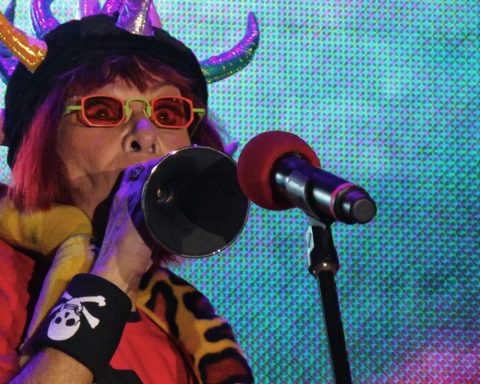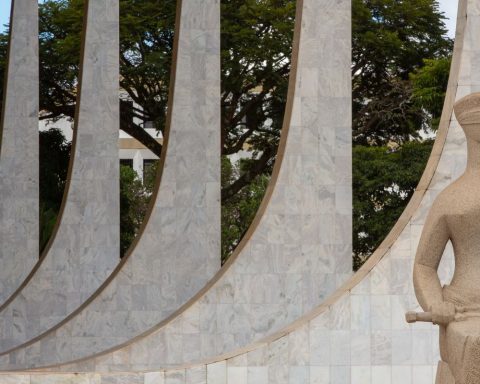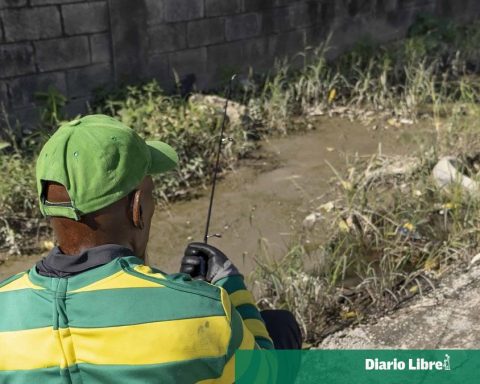In 1960, the Bahian writer Jorge Amado helped outline a milestone for all Brazilian writers: the National Writer’s Day. On the occasion, he and another immortal from the Brazilian Academy of Letters, João Pelegrino Junior, organized the 1st Festival of the Brazilian Writer. More than 60 years later, the literary scene is renewed with new faces, formats and topics addressed. Marked by independent writing and new publishing formats, it is possible to observe a new movement of readers and writers in Brazil. 
Although the number of readers in the country is falling (survey data Portraits of Reading in Brazil indicate that the percentage of readers in Brazil dropped from 56% to 52% from 2015 to 2019), the market recorded an increase in the reading habit during the pandemic. In addition, initiatives that gain momentum on social networks, such as TikTok and Twitter, have encouraged young people and teenagers to discover more national works.
Diego Drummond, vice president of the Brazilian Book Chamber (CBL), says that the teenage audience was the one that grew the most among readers – largely because of the internet. “Social networks are becoming a book recommendation vector”, he acknowledges.
New themes
One of the sales highlights of the publisher Seguinte, a label of Companhia das Letras aimed at young audiences, Clara Alves began her career in the independent market. the writer of connected (2019) says that he started publishing on the internet, in spaces such as Wattpad (free platform for publishing and reading original works). In this community, his work was awarded prizes. “Despite being something informal, without financial gain or publication perspective, it helped me to believe more in my writing and gain visibility”, he comments.
The first launch attempt was in 2015, with the print-on-demand strategy. However, the high cost and other factors made her opt for the digital release. “But it was good for a while, to help me understand the market, network, go to events and be seen,” she says.
The entry into the publishing market came after the writer’s current agency announced a pitch for the presentation of original works at the 2017 Book Biennial. Two years later, came the proposal to launch connected by Next, with repercussions that, according to Clara, still seem a little surreal. “It was pretty crazy, but in a really good way. Not only for knowing that, after years of dedication, my books were finally being recognized, but also for everything Connected meant: an LGBTQIAP+ work written by a woman about love between girls,” she reports.
Giulianna Domingues was one of the highlights of the youth label Galera Record. the work of fantasy northern lights was released independently as an e-book in 2017. At the time, Giulianna heard that there was no space for fantastic literature in Brazil, but she preferred not to believe the negative.
A marketing professional, she reports that the book’s success was leveraged by social media. “They give voice to this audience that is looking for new stories,” she says. Giulianna believes that narratives that feature non-white characters, LGBTQIAP+ and people with disabilities have gained prominence among the younger generation. For her, the current literary moment can be described as “young, intrepid and growing”.
Representativeness
Author Lavínia Rocha, from Belo Horizonte, was 13 years old when she published her first book, A love in Barcelona. At that age, Lavinia still had a very limited image of a writer: male, white, bearded and no longer alive.
As the daughter of a teacher, she was always in contact with the school environment – and that was how her first novel became known in schools. A love in Barcelona ended up being printed independently: at the time, Lavinia’s parents paid for the publication as a way of encouraging their daughter. The following work has already been published by a publisher in the capital of Minas Gerais.
At the beginning of her career, Lavínia recalls that she did not know many Brazilian books aimed at young audiences. “One thing that caught me a lot was not knowing or barely knowing how to pronounce the names in the books I read”, she says. With the insertion in the literary environment, she got to know more national works – such as the series The Karasby Pedro Bandeira, and the books by the writer Paula Pimenta, which take place in Belo Horizonte.
But recognizing oneself in literary works is still a challenge. Lavinia explains that, as a black woman, she noticed that her skin color didn’t show up on the covers of books. The friendships she made in the publishing world helped the author to understand and seek to bring representation to her works.
In 2022, “Quilombinho”, nickname given to the group of friends formed by Lavínia, Olívia Pilar, Solaine Chioro and Lorrane Fortunato, launched the e-book flowers by the sea (2022). The collaborative work marks the meeting of four women who bring experiences as black women to the pages of books.
The lack of representation also caught the attention of the writer Stefano Volp, author of The Secret of the Larvae (2019) and Black men (don’t) cry (2022). In 2020, while researching works of fiction written by his ancestors, as he calls them, he came across several Brazilian short stories by black authors that were never published. It was then that the idea of the Clube da Caixa Preta reading club came about. After this group, the publishing house Escureceu also appeared.
Volp had already published other short stories, novels and even worked as a ghost writer when he started to make a name for himself on the literary scene. “I like the idea that when people buy my books, people find the entertainment they were looking for, but that this soup is also full of lumps and the reader won’t notice them until they’ve been swallowed. In this case, it’s the human, racial and social agendas,” he explains. “Literature for me has been a way of establishing dialogues about the depth of our relationships with the world and with ourselves”.
The importance of literary dissemination
In addition to readers and writers, another key player has stood out: literary publishers. They are part of the support network of independent writers, who look for ways to promote new work on these pages. In 2020, Íris Teles, 21, decided to talk, on her social media, about the books he read – usually Brazilian works by independent authors. Realizing that these titles were little talked about on the internet, she created the National Disclosure.
“Divulga Nacional was born with the aim of promoting national authors. The criterion is basically this: to be someone who writes within our country. If the author wants to be published in the profile, just write an email introducing yourself and talking about his work”, explains the promoter, who also filters if there is hate speech in the indicated publication.
Currently, Divulga Nacional is managed by Íris and her boyfriend Lucas Estevez, 23. The profile has 57,300 followers on Twitter and is present in other media such as Instagram and TikTok, in addition to a Telegram channel aimed at promoting promotions books.
How to publish your own book
To show new possibilities in the Brazilian literature scenario and encourage more and more writers, the Brazil Agency prepared some tips on how to enter this market:
– the first is unanimous among the interviewees: continue writing. The exercise of writing is essential to improve techniques and develop skills. The writer Giulianna Domingues emphasizes that it is important to “take yourself seriously as a writer” in order to continue to pursue the dream;
– it is also essential that the writer broadens literary horizons and reads contemporary writers. After all, the network of new writers is one of mutual support;
– Before publishing, it is necessary to be aware of the market and where the target audience is. So it’s a good idea to keep an eye on independent publishing platforms. Currently, there are platforms that allow the self-publishing of works in e-book format. In addition to this format, writers also use resources such as Wattpad and social networks to post texts;
– Publication notices from magazines and publishers can also be a gateway to enter the publishing market. It is important to keep an eye out for opportunities published in official media and, whenever possible, also participate in literary events. Presence at events and on the internet itself, interacting with readers and writers, can help the author to create a network of contacts. Participating in anthologies and collaborative works is also a good opportunity for growth for everyone involved.
– and, of course, do not stop publishing. There are formats for the most diverse audiences and a literary scene where there is space for lovers of reading and writing.
*with supervision by Nathália Mendes

















